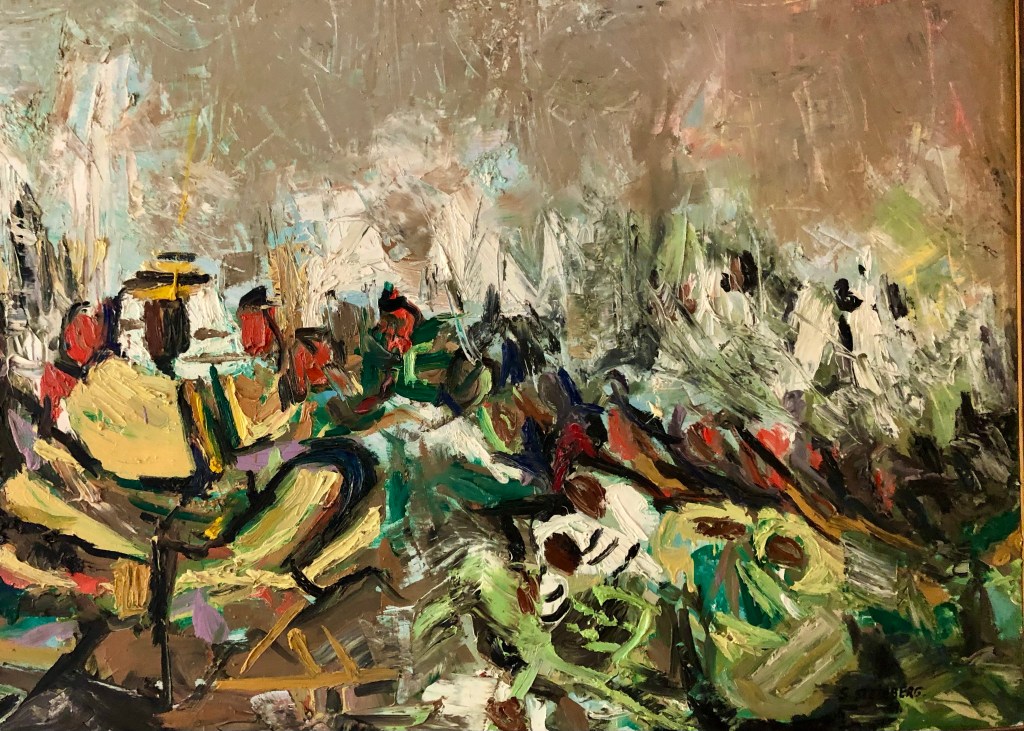
“It might be the greatest, most moving address in all literature.” That is the way my eighth grade religious school teacher, Mr. Joseph Ehrenworth, z”l, described Judah’s appeal to Joseph, which begins parashat Va-yigash.
The entire story of Joseph builds toward the moment when Joseph –so moved by Judah’s words- reveals himself to his brothers. We wonder though, why Joseph treated his brothers so harshly? Why did he accuse them of being spies? Why did he demand Benjamin’s presence in Egypt, and why did he instruct his steward to put his special goblet into Benjamin’s bag?
Some commentators suggest that Joseph’s motive was revenge. The brothers sold Joseph as a slave, and so now Joseph is paying them back. Even W. Gunther Plaut in his masterful Torah commentary suggests revenge as one of Joseph’s motives. Plaut writes, “At first and understandably, Joseph thought of revenge . . . He still wants revenge more than he wants love . . .” (The Torah, A Modern Commentary, p. 271). Later, (P. 284) Plaut writes, “Joseph first faces his brothers in bitterness and devises a cat-and-mouse game in order to have his revenge . . .”
If, however, revenge had been Joseph’s goal, he could have exacted it without disguise, without delay, and without bringing the untold anguish upon his father that Benjamin’s journey to Egypt caused. If Joseph wanted revenge, he would not have said, “Now do not be distressed or reproach yourselves because you sold me hither; it was to save life that God sent me ahead of you . . . So it was not you who sent me her, but God.” (Genesis 45: 5,8)
No, revenge was not Joseph’s motive. Joseph acted as he did for only one reason: He wanted to see if his brothers had changed.
Years before, Joseph had been their father’s favorite. He tattled on them, he bragged about his dreams, and he proudly wore the famous “coat of many colors” that their father gave to Joseph and Joseph alone. As a result, Joseph’s brothers hated him so much that they sold him into slavery.
With Joseph gone, Benjamin, the only remaining son of Jacob’s beloved Rachel, became Jacob’s favorite. By putting his cup into Benjamin’s sack, Joseph places Benjamin in a position whereby he would be detained in Egypt as a slave and Jacob would once again suffer the loss of his favorite son.
Judah knows what is at stake. Although he was in no way responsible for Benjamin’s plight (in contrast to his pivotal role in the sale of Joseph as a slave years ago) Judah steps forward (Genesis 44:18-34) and stirringly describes the events that have transpired. He then tells his disguised brother that Benjamin’s imprisonment in Egypt will be too much for their aged father to bear, and he will die. Then, Judah offers himself as a substitute for Benjamin. That is all Joseph –who has already had to leave the room twice in his meetings with his brothers to avoid breaking down and weeping in their presence– needs to hear in order to end the charade.
Our tradition calls a person who repents for his or her sins a ba’al or ba’ alat teshuvah (literally, a “master of repentance”). The Jewish tradition accords even a greater honor to a person who commits a particular transgression but later, when he or she is put in a similar position, turns away from the same kind of wrongdoing. That person is a ba’al or ba’alat teshuvah shelemah (a “master of complete repentance”). This is the lofty designation Judah earns for his actions in Joseph’s presence. [See Nehama Leibowitz, Studies in Sefer Bereshit, pp. 327-328 (Hebrew edition), pp. 460-461 (English edition)].
In Parashat Va-yigash, Judah becomes a true hero. The story discusses his emergence as the progenitor of Israel’s most enduring tribe. We can be proud that the words “Jew” and “Judaism” are derived from his name. More important, Judah’s example of repentance can inspire us to examine our own actions and help us to turn away from transgressions we have committed in the past.
I am deeply grateful for my studies with Professor Leibowitz in Jerusalem during the 1970-1971 academic year, which helped me develop the outlook I have shared in this commentary.

